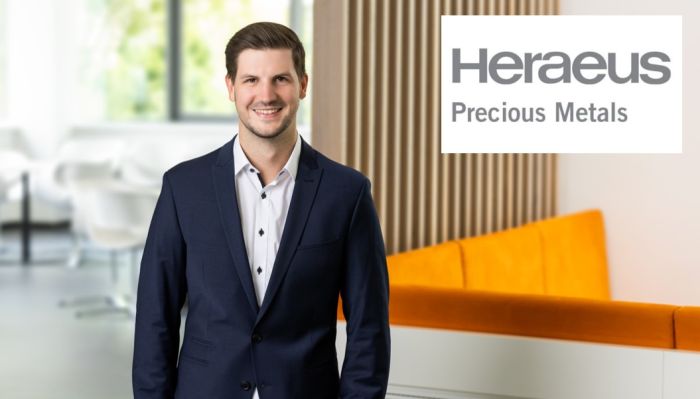Hi, my name is Michael George. I am a chemist with a PhD in the field of fuel cell catalysis and with a passion for hydrogen topics. In the Hydrogen Systems department of Heraeus Precious Metals, I am happy to lead our material synthesis team, which is responsible for the development of fuel cell and electrolyzer catalysts as wells as the transfer from lab scale to a production scale. Within BRAVA, we at Heraeus focus on transferring novel catalyst synthesis methods to a production scale at industrial level.
What was your original motivation to become a researcher?
I think that it is really fascinating, how research and development allows us to create solutions to new challenges and problems which come with modern problems e.g. climate change and the green energy transition.
What is your (main) research area today?
My research focus lies in the field of fuel cell and electrolyzer catalyst development and how to transfer novel synthesis processes to production scale.
What is the main objective of your team in BRAVA?
Within BRAVA, we at Heraeus support the TU-Berlin catalyst team in the development of a novel catalyst material, that fulfills the special requirements that come with the aviation sector. In addition, we will perform first application near single cell tests of different catalyst materials to select the most promising candidates. Our main focus is then the transfer of the catalyst synthesis method to our labs and to enable a production of the material at industry relevant scale.
What expertise and facilities does your team have to meet those objectives?
Heraeus Precious Metals has a long ranging history and experience in the field of precious metal based catalyst development. Within our Hydrogen Systems department we focus on the catalyst development, characterization and testing of fuel cell and electrolyzer catalysts since many years. Working closely with our production team at Heraeus, allows us to guide the catalyst development in a way that allows a fast scaling of new products.
Which aspects of your research at BRAVA do you believe are the most innovative and what unique opportunities offer BRAVA to yourself and/or your organisation?
Transferring the fuel cell application to the aviation sector, brings a lot of new barriers and challenges that do not exist for the well known passenger vehicle applications. With our experience in catalyst development and production scale up, we are happy to take part in transferring the hydrogen fuel cell technology to the aviation sector and to be pioneers in this new field.
How do you see the future use of the BRAVA-results and the impact of BRAVA-project in our daily lives?
It is clear, that hydrogen will become one of the most important energy carriers in the future. This also applies to the aviation sector of course. Transferring the fuel cell technology to the aviation sector is a tough challenge, which affords a lot of innovative research, development, testing and endurance. The BRAVA project and its different partners working jointly together on the same target however, will have a big input within this field and in future developments.

